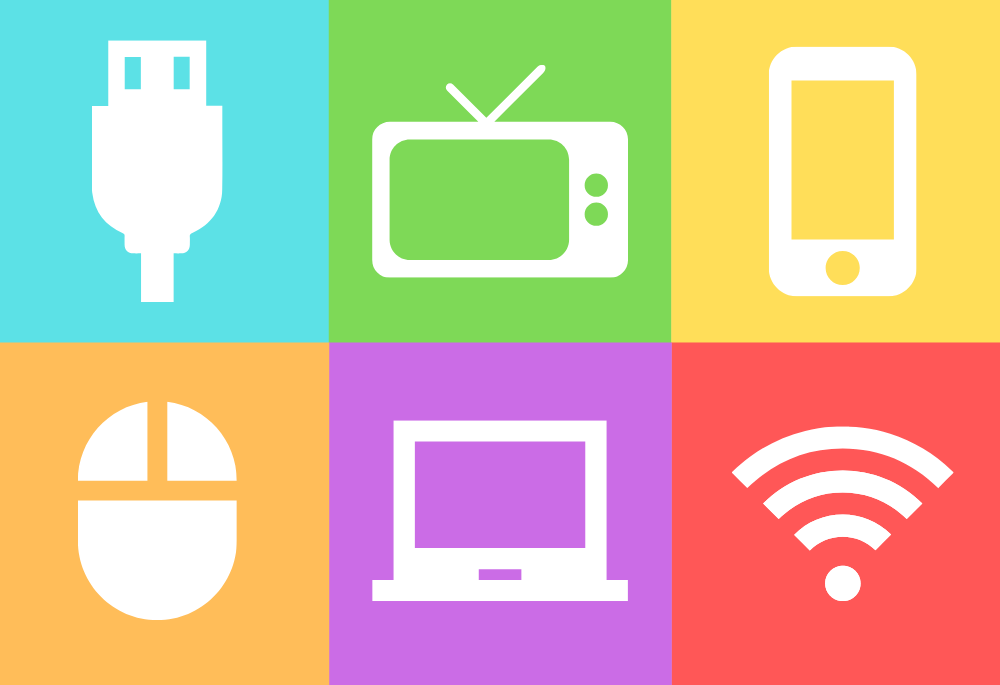I remember getting my very first cellphone—a Nokia flip phone—at age 12. My mother remembers when her family got colour TV! But kids nowadays were practically born knowing how an iPad works. How do we get them off the screen without a fight?
First things first: let’s work on our mindset. If we start screeching about “kids and their phones” every time we see our child texting, we’re setting ourselves up for a battle. Instead, remember that your generation was brought up in a different world: you drank from hoses, you walked home from school alone at age 8, and you knocked on doors until you found a neighbourhood kid willing to play. You probably don’t let your children do that anyways… because that’s not how things are done anymore. But using technology constantly is normal in the 21st century. So how can you blame them for clinging to it when it’s how they were raised?
Technology also has a different significance for each generation. And like it or not, it’s not inherently good or evil. Sure, there’s bullying, there’s misinformation, and there’s a constant flow of depressing news from around the world. But there is also an intricate network of meaningful connections between people across the planet that’s growing with every minute. There is a community for every type of person. An endless source of cultural exchange. Accessible education. Friendship. Entertainment. Teamwork. Happiness. So when you angrily swipe your teenager’s phone because they’re on it too often, remember what else you’re taking away.
That isn’t to say that limiting screen time is an antiquated practice. Having a good on-off screen balance is important for mental and physical health, for relationships and social skills. Why?
Mental health
- Online: accessible therapy, community, reaching out to friends/family
- Offline: distance from bad news, bullying, comparing yourself to others online
Physical health
- Online: apps to track fitness or healthy eating, recipes, encouragement from peers
- Offline: actually exercising, cooking and eating healthy food
Relationships
- Online: connecting with people all over the world who share interests or characteristics
- Offline: meeting peers in person for a different type of interaction
Social skills
- Online: how to communicate via Zoom, social media, email; Internet language
- Offline: social cues, face to face interactions
In the 21st century, these are all skills we can use to become better integrated and happier members of society—online and offline. So coming back to the question of the day, how do we get kids off their tablets, phones, or computers?
- Going into the conversation with the right mindset is important. Now we know why using technology is normal for our kids and how much it can do in terms of health and social connections (especially in a pandemic!). Don’t be judgemental or aggressive in your critique of technology and you’ll already be on the right track.
- Propose fun alternatives, such as a board game or outdoor activity, weather permitting. If you tell your kid to get off their phone, they may be at a loss for replacement pastimes. If you have a few ideas up your sleeve, it’ll be easier to transition to a new activity. Play together, cook together, read together, make art together… the possibilities are endless.
- Meet in the middle! You can’t expect kids to give up technology cold turkey. Maybe propose you go out to play basketball for two hours, and after dinner the whole family can play Mario Party on the Nintendo Switch. Or tonight, read a book, and tomorrow night, watch a movie.
- Don’t use screen time as a reward. This one depends on your kids, but I find that setting up technology as a prize only makes kids want it more. If the tablet is always available, it isn’t as special, and your children may find themselves almost bored of using it anyways.
We can’t guarantee these tips will immediately change your family’s life. But by making compromises and accepting other perspectives, we can make great strides with our kids’ (and our own) technology-ridden habits.
Looking for book recommendations? Try these:
- Super Hammy: My First Reading Series (ages 4-8)
- Recess in the Dark (ages 4-8)
- One Story a Day for Early Readers (ages 8-10)
- One Story a Day [Intermediate Readers] (ages 11-15)


